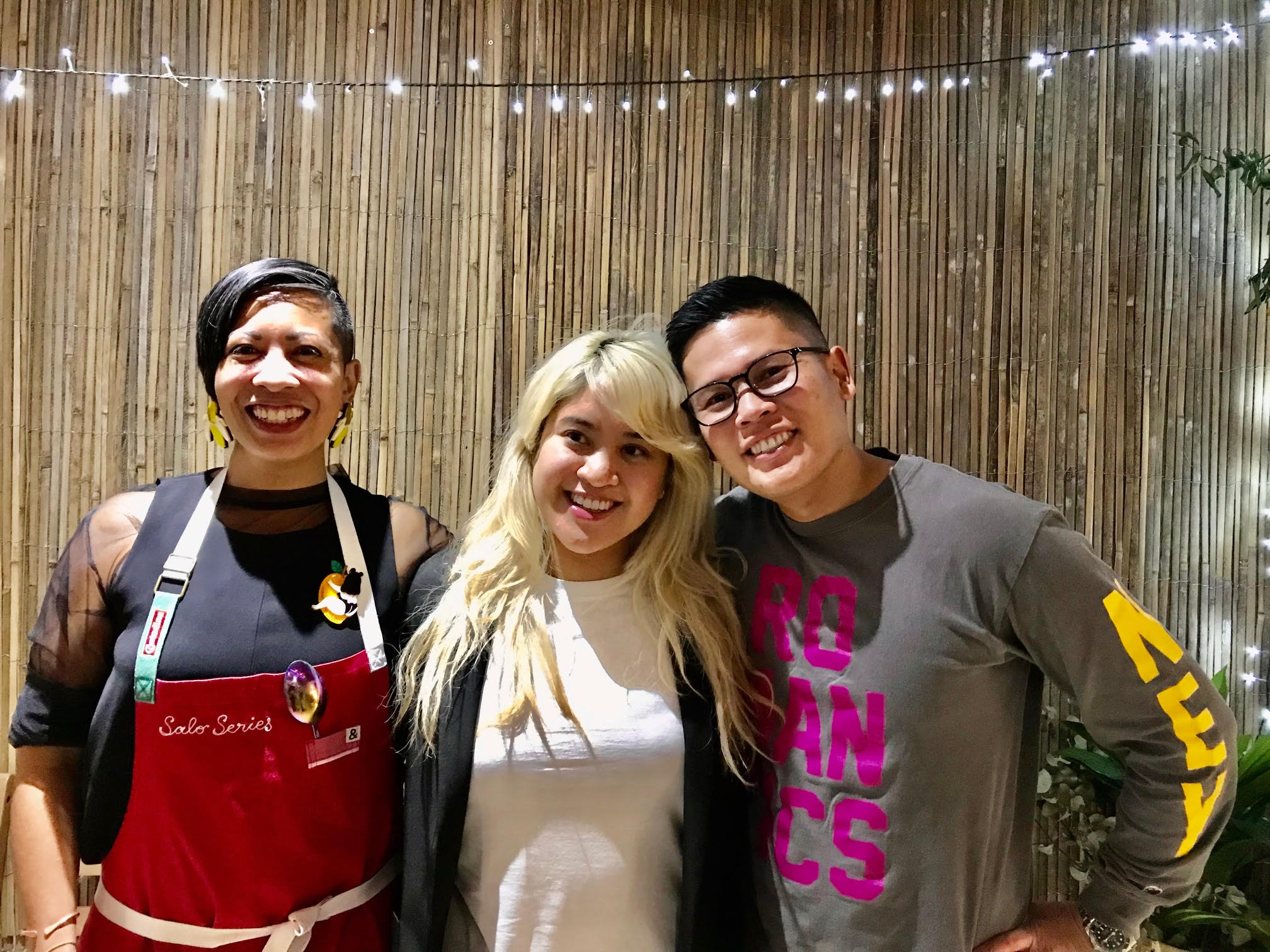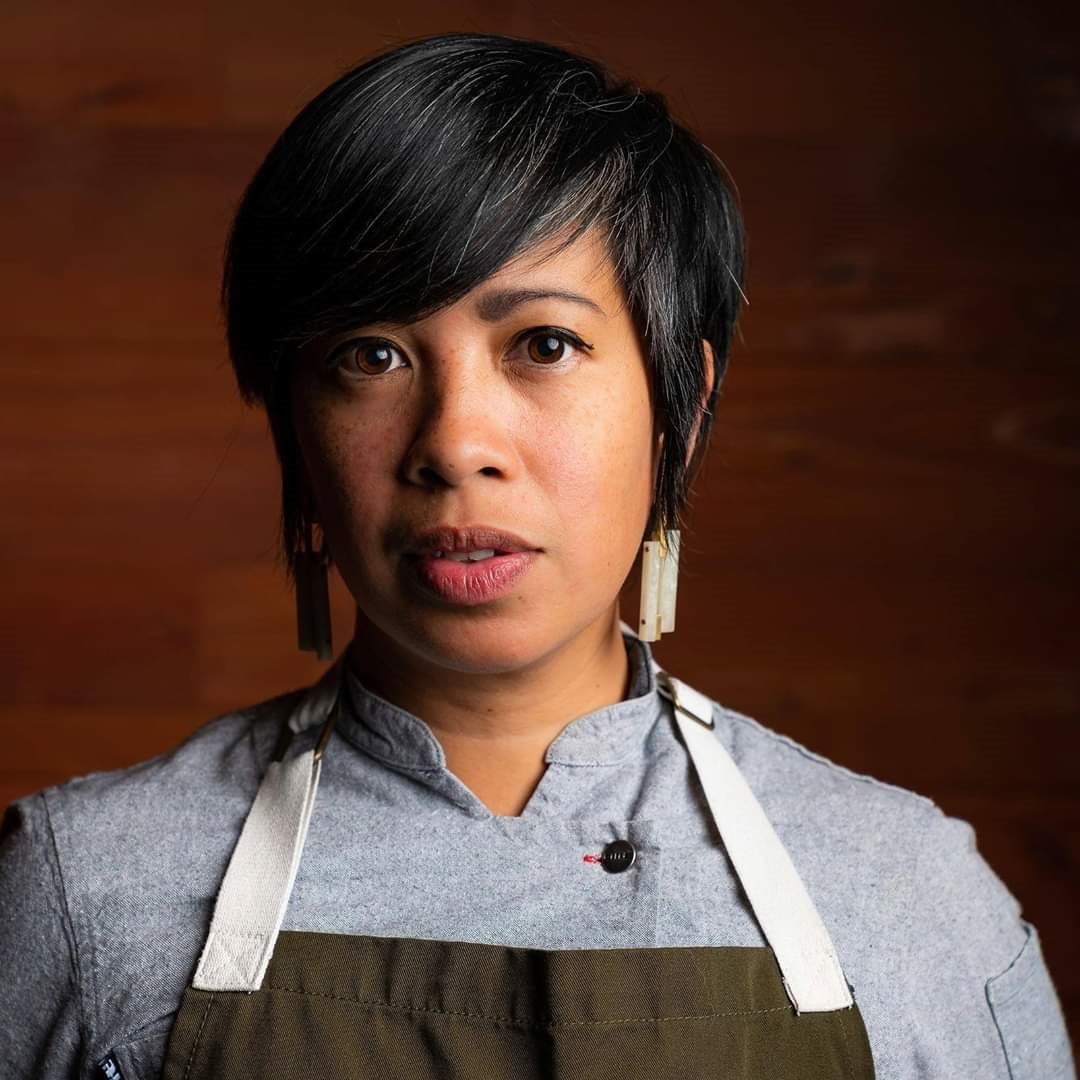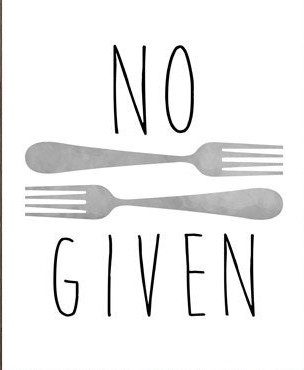FINDING YANA GILBUENA
At a recent article on Sydney Cebu Lechon's [SCL] involvement in extending assistance to international students, SCL owner Will Mahusay sent a photo of him which included Yana Gilbuena at her visit to Sydney. This kindled our interest to find out more about Yana, with the aim of highlighting her culinary journey, and to find out another Fil-Am's views on two issues that have been gripping the USA. Coincidentally, our first interviewee Regina Tolentino Newport, a Pinay in Washington DC is also a Chef and a cookbook author.

We were pleasantly surprised to know that as part of her tour taking the Salo Series which hosts Filipino Kamayan dinners, Yana was in Sydney in collaboration with the Filipino Food Movement Australia last year. They hosted Kamayan dinners on 9 - 10 July, 2019 which featured Yana's Tasmanian Salmon Sinigang Poke and Kabuteng Sisig, with SCL's famous signature Lechon and Hanmade Desserts' Pan De Coco Sans Rival to complete the dinner offering.
Philippine born Yana Gilbuena, is now popularly celebrated as a global nomadic chef, with her Salo Series which aims to acquaint the world with the vibrant food culture of the Philippines. The Salo Series hosts Filipino Kamayan dinners, in which food is served on communal tables decked with banana leaves, and guests are encouraged to eat with their hands, as was the tradition before the Philippine colonisation.

Before following her passion and finding her feet in the culinary world, Yana completed a Bachelor of Science in Psychology UP Diliman and did also did an Associate's degree in Architecture. She worked as Behavorial Therapist for Autistic Children. She relishes completing a marathon and scaling Mt Pulag as her fondest achievements in the Philippines. She migrated to the USA in 2004 and had seven years working as Interior/ Furniture Designer. She recalls that the universe gave her an out when she lost her job and able to focus on her passion. She has been a Chef since 2013. She considers having done Salo Series and her cookbook No Forks Given as her achievements since she has been in the USA.

Yana shares that her biggest challenge in life was growing up without her parents who separated so she was brought up by her grandmother. Whereas in her culinary journey, the biggest challenge for her was the initial hardship bringing people to the kamayan table and eating with their hands. She is now happy that the Kamayan is now well known in the USA and globally.
In her American tour, Yana hosted pop-up dinners in 50 states in 50 weeks, as well as across Canada, Mexico, Colombia, Australia, Europe and her home country, Philippines. She is a 2017 Stone Barns Exchange Fellow and has also been featured in major publications such as The New York Times, SF Chronicle and National Geographic. She's been published in The Cherry Bombe Cookbook, Feed the Resistance and has self-published her own cookbook: No Forks Given in March 2019. This global culinary nomad aims to further her mission and aims to host a Salo on every continent (and resume this quest once we've found a vaccine for covid19) and later on write cookbook number two.
Yana who is based in San Francisco was also happy to share her views on two matters that have been gripping the USA in the last several months. These are the 'Black Life Matters' unrest and the spiralling figures of confirmed cases and deaths caused by the COVID-19. We are glad to share below our questions and Yana's frank responses regarding these two topics.*
'BLACK LIFE MATTERS' UNREST
This was triggered by the death of George Floyd following his "I can't breathe" appeal to the policeman who had his knee on his neck. There had been big protest rallies in the USA as well as in many countries including Australia.
What is your view on the 'Black Life Matters unrest that is happening in the USA?
I think it has been a long time coming. Whether we are aware or not, there is racism up to now, even in 2020. It is good that it is now being talked about , not only within people of colour but in international and nationwide dialogue. The situation is that people that used to say racist things or did not think they say racist things, are more careful and that it is not okay what they were saying. It is not just about what we say but also reflected in the way we treat people.
We are not aware that there is racism within the Filipino community, so it is good to address that in a more relevant way so that we as Filipinos in our diaspora will be able to address our own racist views.
Police brutality in the USA is still happening. We now see the taking down of confederate leaders statues because they symbolise oppression and slavery. There is awareness that they were part of American history and now there is a recognition of the need for reparation.
What is your view of how the White House is handling the unrest?
I am going to say this as plain as possible. Majority of the American government officials are racist and that is the reality of the climate we live in right now. That is why there is a lot of push back and not a lot of support. A lot of people would not acknowledge or do not think that what they say or do is racist. They won't admit that they have racist tendencies and they are not doing anything wrong.
Until such time there is that acknowledgement at least "Oh yes, you are right; slavery is wrong" and continue to institutionalise racism that exist in our society, things would not improve. We need to change everything and have a complete re-haul, not just the government but also the way we structure the workplace and the way we structure the economy. But a lot of the government officials do not do anything about them because it serves them.
Have you or people you know in the Fil-Am community joined the street protests?
I know people who have joined the protests and also very active in social media just spreading the work in our circle of families and friends. For me that conversation and dialogue in our community needs to happen as much as we join street protests.
I have not personally participated in street protests because I am scared of possible transmission of COVID-19 as there is not much social distancing being observed. Also, I am a woman of colour and I am really scared of the police as the track record of police in protests had not been good. Instead I use my social platform and dialogue with family and friends for now.
What is your view of the directive for Police Reform that President Trump has signed?
I think we need to dissect the Bill. To be honest I have not looked deeply into it. But I have no trust in him because of the way he was navigating around COVID-19 and the way he is handling protests. He is just being reactive to it and not put a systemic reform but just like a band aid. His fall number is going to shoot up, he is just being 'performative'.
It may sound negative that I don't trust the President but you just need to look at his track record of being a leader in this time; it shows he is not.
Aside from Police Reform, what else do you think is needed to ensure harmonious relationship between all the people in America?
For me, the most viable solution right now is to acknowledge there is inequity. There is a need for acknowledgement that there is inequity between people of white ancestry and those not with white ancestry. It is also being able to acknowledge that there is the "white privilege" not available to all.
Until we acknowledge that there is societal, governmental and economic inequity within America, it would not be possible to establish harmonious relationship between people.
COVID-19 SITUATION
The number of COVID-19 confirmed cases and deaths in the USA has been staggering. As of this morning, the number of confirmed cases were 2,741,841 and with number of deaths being 130,147.
What is the COVID-19 situation in San Francisco?
As of the moment, the cases in San Francisco had been steady in terms of there is minimal increase in cases but we will see because we just started to open, the effect of restaurants and other businesses opening. In other states which opened earlier than California, they had already seen an increase in cases of COVID-19.
San Francisco in general had been good in implementing the Protective Personal Equipment [PPE] as a mandatory rule so when we come out of our house, we wear our masks; we disinfect and wash our hands when we get back home. Although we see some who don't wear the masks, they are not as big of a number as in other states.
What is your view of how the White House handled COVID-19?
I think they definitely mishandled it because they were very hesitant at first to even acknowledge at the start that it was a pandemic. So right there was the very first mistake instead of acknowledging that it is a nationwide emergency and that everybody needs to do their part, and instead of the White House instead leading this initiative, it was up to the individual states' leaders like the governors that took action. In states like California, our governor was very good in terms of shutting it down two weeks before the White House gave the direction to shutdown. We were shutdown from March 16; other states did not shutdown until end of April.
It was not an organised approach and definitely lacked leadership mainly because there was no scientific belief by the President even though facts were there. He refused to believe that it is something that can be cured by science. Instead of him saying the media is just making a big deal of it. It is not the media, it is actually happening everywhere. A lot of people listen to the President so if he says it is not a big deal, they think it is not a big deal. Not unless you have people who are critical thinkers and who would do the own research on their own; but let us face it, that is not something that a lot of Americans would do.
How is the Fil-Am community handling the situation or how badly are they affected by the restrictions?
I would like to tackle the medical side first. We know that majority of the health care workers are Filipinos or Filipino-Americans. They are the ones in the frontline and risking their lives. I have heard from friends that there is already a lot of deaths in the Fil-Am community because of the lack of PPE, or the government did not give them the funds to get their equipment. In that aspect, the Fil-Am community is struggling,
There is also the business side where a lot of pop up shops and small restaurants cannot open after the pandemic because they could not afford the overheads, with the restaurants running on fifty percent of their usual operations. There is a need to re-structure the dining setting with everyone being 6 feet apart, glass enclosures, etc. I think there is too much of a re-haul that I feel not a lot of businesses can recovered.
How scared are you of contracting the virus or what impact does the virus have on your movements?
It definitely has affected my livelihood and business as I do pop up and specialise in eating in Kamayan. Nobody will be willing to eat with their hands any time soon; despite we say that washing the hands properly will be okay. And how do you eat Kamayan with mask on?
The movement within my household - my husband, me and the puppy is that I try to go to, let us say Costco and other warehouse type grocery shops, once a month. I top up of what I need in terms of cleaning materials and other dry goods. On the weekends, I want to support the local farmers because they were the ones directly affected by COVID with the restaurants being closed down and they have no other places to sell their produce.
Do you know personally someone who has contracted the virus and also perish from it?
Fortunately, I do not know anyone who got sick or died because of the virus. I know a couple who had mild cases but recovered. I am thankful for that.
Do you agree with the lifting of restrictions?
Personally, I don't think we are ready just because there is no cure and no vaccine. Despite talks of fast tracking the development of the vaccine and being available in 10 months, it is highly doubtful that it is going to happen.
In terms of the economy being cautious and opening up, I think it is okay and I would support the businesses that are opening this time. My stand is that lives matter more than money. I would rather, let us slow down before we see more people die from the virus which has zero cure rather than feeding the capitalist mindset of making more money.
We look forward to meeting in person our Nomadic Chef when her plan to come back here in Australia happens. In the meantime, we wish her all the best in what she undertakes in her culinary journey which also promotes Philippine culture.
Photo gallery credits: The Filipino Food Movement Facebook Page
- - - - -
Radio Tagumpay interviewed Yana in the radio programs on June 22 and 29, 2020. Radio Tagumpay airs on Triple H 100.1FM on Mondays, 2-4pm and can streamed globally via https://www.triplehfm.com.au/